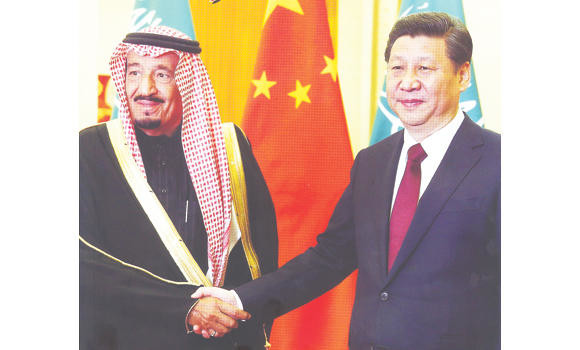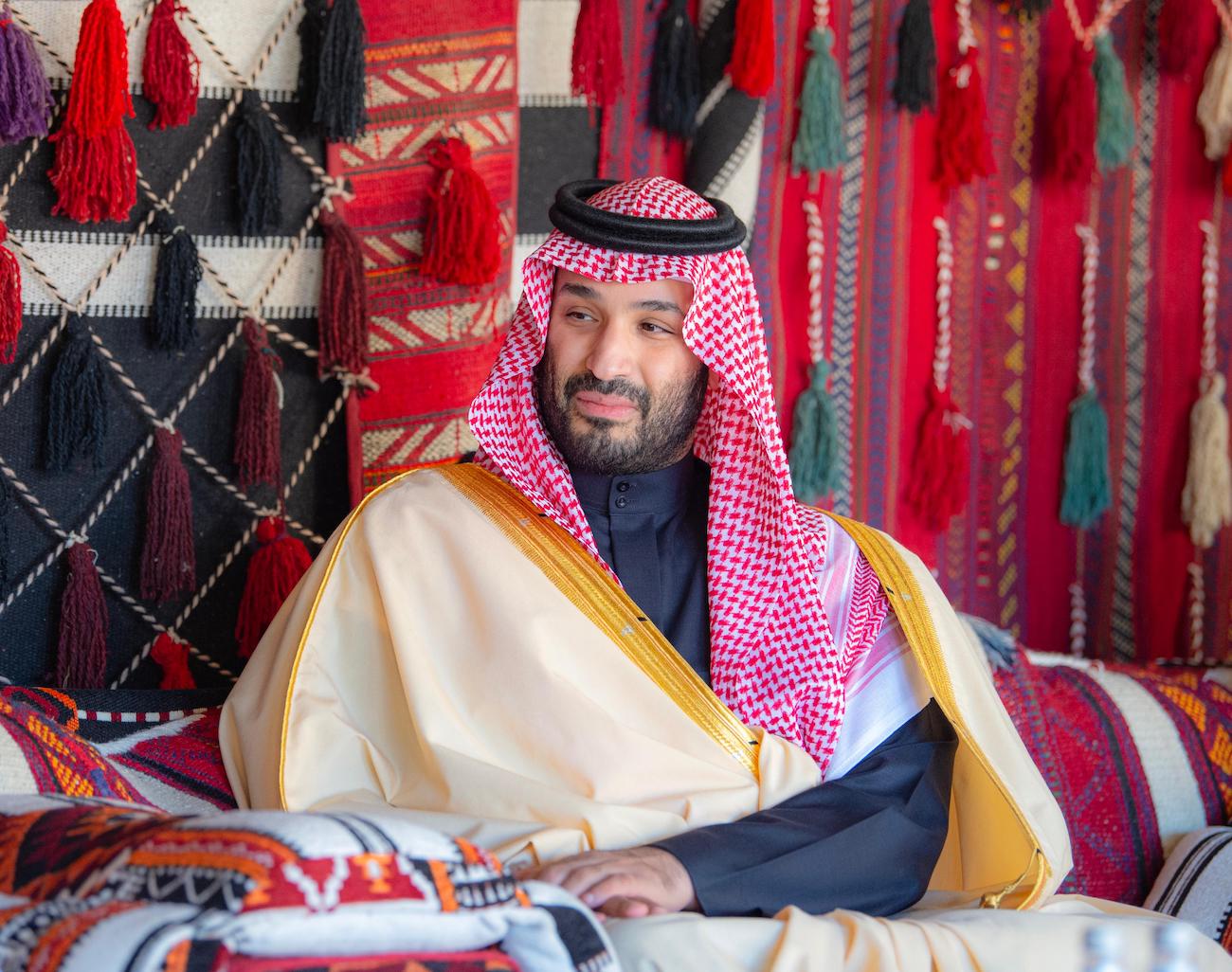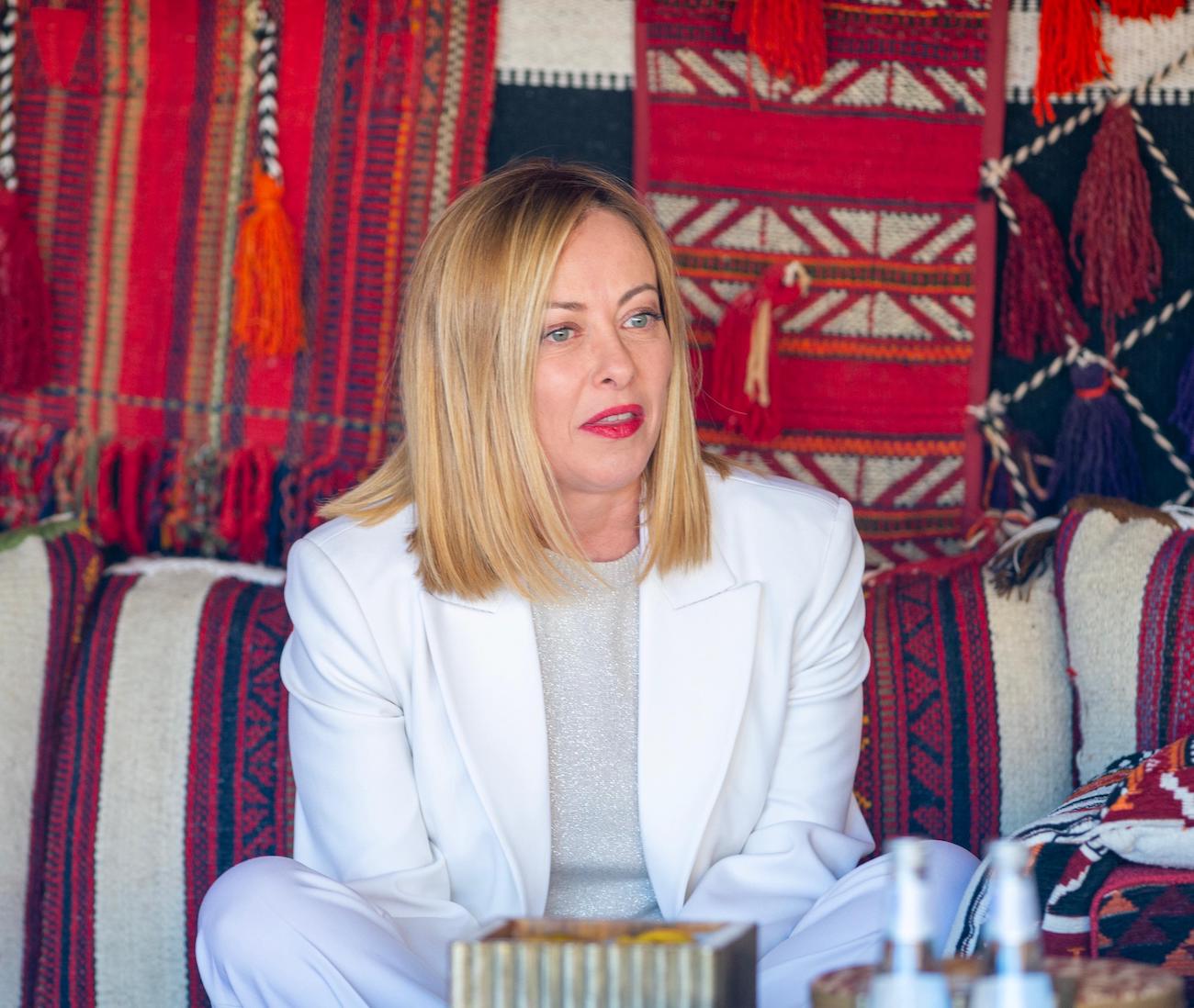RIYADH: Saudi Arabia has emerged as China’s biggest economic partner in the region with the bilateral trade standing at $70 billion annually. The one-belt, one-road strategy could add new mileage to their relations.
In 2014, Custodian of the Two Holy Mosques King Salman visited China when he was then the crown prince for a four-day visit to further cement the strategic historic relationship between the two countries.
Thanks to the strategic proposal of Chinese president Xi Jinping to establish a “1+2+3”cooperation pattern under the Belt and Road framework, which takes energy cooperation as one core, infrastructure construction and trade and investment facilitation as two wings, and sets to make breakthroughs in three high and new tech fields, including nuclear energy, aerospace and new energy.
Saudi Arabia, located at the key juncture point of the Belt and Road, is the leader of regional development. It is also one of the most significant partners in the construction of the Belt and Road.
According to Chinese Ambassador Li Chengwen, China is counting on the pivotal role of the Kingdom in taking the relations forward to the next level to strengthen peace and cooperation through the Silk Road. When completed, it could act as a major intercontinental trade route linking Asia, Europe and Africa.
In a related development, the Industrial and Commercial Bank of China (ICBC) opened a branch in Riyadh, becoming the first Chinese bank to establish its presence within the framework of China’s international diplomacy. It will provide funding to investors, both Chinese and Saudis, who wish to launch projects in the Kingdom.
As Ambassador Chengwen points out, China is currently one of the fastest growing economies by diversifying its economy through infrastructure, which will lead to job creation. Within the framework of this macro approach, Ambassador Li Chengwen held a high-profile meeting with Saudi and Chinese entrepreneurs in the Kingdom.
Minister of Commerce and Industry Tawfiq Al-Rabiah and the Chinese side signed a memorandum of understanding (MoU) on the protection of the Saudi consumer. Its aim is to check the entry of counterfeit goods and safeguard the interest of the business community on both sides.
Later, addressing the entrepreneurs, Chengwen said: “You have to work hard. Our businesses can develop only on the basis of mutual respect and innovation thanks to the rapidly growing relationship and mutual confidence.” And to underline his firm commitment to the deal, Chengwen said those found guilty of violating the accord “will be blacklisted.”
As for the one belt and road policy, he said it will help the Kingdom and the region as well as China to accelerate the pace of development and make their economies sustainable.
He added: “Last year also marked the 25th anniversary of establishing diplomatic relations between China and the Kingdom. In the past 25 years … the two nations have become strategic partners and have achieved fruitful results of cooperation in various fields.
“Mutual respect is a major premise of Sino-Saudi relations. Despite different national conditions, China and the Kingdom adhere to the principle of mutual respect and equality. We respect for each other’s cultural traditions, social systems and core interests and concerns,” Chengwen added.
He said: “Representing Chinese civilization and the Islamic civilization separately, we both advocate respect, harmony and dialogue among civilizations. The friendly relationship between China and the Kingdom becomes a model of accommodation between different civilizations. Mutual respect and tolerance between China and the Kingdom guarantees the right direction of Sino-Saudi relations.”
The ambassador said China is counting on the pivotal role of the Kingdom in lending a new momentum to the initiative of peace, cooperation, tolerance and mutual learning to revive the Silk Road, one of the most important trade crossings in the continents of the ancient world, Asia, Europe and Africa.
“China is working to establish the free trade area of the Asia-Pacific in the current year. Approval of APEC members in the roadmap represents a historic step for the official launch of this process and emphasizes the APEC confidence and determination to push forward regional economic integration,” Chengwen added.
On Chinese-Arab level, he said that in building a belt and the road they will make the Arab states led by Saudi Arabia the focal point in this great road linking the continents of Asia, Europe and Africa.
On the Group of 20 nations summit (G-20) in Australia, the ambassador stressed that the Kingdom is the only Arab country in the G-20, which has an important place in the global economic structure and energy.
In this context, CRCC Saudi Branch is implementing five projects in Saudi Arabia, including Riviera-1 Compound Alkhobar project.
They include development of the Ministry of Interior's Security Headquarters (phase five); renovation of 78.4 km railway line number two between Dammam and Riyadh; expansion of Dhahran Residential Community – 240 residential villas (package number four), Dhahran Camp, and renewal of 91 km of mainline number two between Dammam and Riyadh, with a contract value totaling $ 3 billion.
As cooperation between China and Saudi Arabia deepens, CRCC sees more opportunities to get involved in various infrastructure projects here. It is contributing to the Kingdom’s prosperity, enhancing bilateral economic cooperation by building a bridge along the Silk Road Economic Belt and the 21st-Century Maritime Silk Road for the realization of the China Dream and the Global Dream.
One-belt, one-road strategy adds mileage to historic relationship
One-belt, one-road strategy adds mileage to historic relationship

Saudi permanent representative presents credentials to UNESCO chief

- Abdulelah Altokhais is seeking to strengthen Kingdom’s cooperation with UN agency
- Paris talks focus on collaboration to promote coexistence among peoples and cultures
RIYADH: Abdulelah Altokhais, Saudi Arabia’s permanent representative to UNESCO, presented his credentials to Audrey Azoulay, the organization’s director-general, at its headquarters in Paris on Sunday.
The Kingdom’s mission to the UN-affiliated agency wrote on the X platform that Altokhias is “continuing Saudi Arabia’s efforts to strengthen joint cooperation with UNESCO and member states toward a better-shared future.”
During his meeting with Azoulay, Altokhais reviewed Saudi Arabia’s contributions to numerous UNESCO projects through its role in the organization’s Executive Council and membership of the World Heritage Committee.
He emphasized the need to enhance collaboration with UNESCO to promote peace and coexistence among peoples and cultures.
Altokhais studied philosophy at the University of Florida, and has worked in the cultural heritage, planning, and tourism fields, the Saudi Press Agency reported.
Saudi Arabia to promote rural development at global trade fair

- Program’s assistant secretary-general for media and communication said participation aims to attract foreign investment and strengthen international cooperation
RIYADH: Saudi Arabia will showcase its advances in agriculture and promote a range of local products at one of the world's leading horticulture trade fairs in Germany.
More than 1,600 global exhibitors will take part in IPM Essen from Jan. 28-31, with the Kingdom participating through its Sustainable Agricultural Rural Development Program.
The goal is to highlight the Kingdom’s efforts in advancing agriculture, supporting farmers, and promoting local rural products globally, the Saudi Press Agency reported.
The program will showcase its rural community development initiatives and support for small farmers, while emphasizing partnerships and collaboration with experts.
Majed Al-Buraikan, the program’s assistant secretary-general for media and communication, said that participation aims to attract foreign investment, strengthen international cooperation, and align with Vision 2030 to diversify the economy, improve food security, and enhance Saudi Arabia’s global agricultural standing.
The event offers an opportunity to explore innovations and solutions that could benefit small farmers in Saudi Arabia, Al-Buraikan added.
The Saudi pavilion will present its support programs, and distribute informational materials on subsidized sectors, including Saudi coffee, honey, and aromatic plants.
The fair will feature sustainable agricultural solutions, along with conferences and workshops addressing sector challenges and opportunities.
Saudi crown prince receives Italian PM in AlUla

- Two leaders discussed relations between their countries and ways to support and enhance them in various fields
RIYADH: Saudi Arabia’s Crown Prince Mohammed bin Salman received Italian Prime Minister Giorgia Meloni at the winter camp in AlUla on Sunday.
The two leaders discussed relations between their countries and ways to support and enhance them in various fields, Saudi Press Agency reported.

They also discussed regional and international developments and issues of common interest during the meeting.
Later on Sunday, Prince Mohammed and Meloni signed an agreement to establish a strategic partnership council between their governments.

Meloni arrived in the Kingdom on Saturday.
Islamic leaders call for unity against extremism at Bangkok conference

RIYADH: Participants in Bangkok on Sunday at the third Khair Ummah conference of the Association of Southeast Asian Nations stressed Islam’s foundation in worshipping Allah and following the Prophet Muhammad’s teachings, urging Muslims to promote moderation while contributing to progress.
In a final communique of the two-day event, which was organized by the Saudi Ministry of Islamic Affairs in Thailand, participants called on scholars to uphold Islam’s tolerant values and address misinterpretations of religious discourse.
They highlighted the importance of following the path of the Prophet’s companions, combating extremism, and rejecting groups that misused religion for personal gain, the Saudi Press Agency reported.
Participants stressed the need to leverage modern media and technology to promote Islam, counter misinformation through research, and develop programs instilling Islamic values and tolerance in young people.

The conference focused on research papers by various scholars and aimed to strengthen communication among Islamic leaders and institutions to advance civilization.
Saudi Arabia’s Islamic Minister Sheikh Abdullatif Al-Asheikh on Saturday emphasized that the conference aimed to strengthen Islamic unity and uphold Islamic identity through solidarity and adherence to the truth.
He said that scholars had a significant responsibility in light of global challenges and the intellectual, political, social, and security issues facing the world.
Al-Asheikh added: “This situation calls for a real response from scholars and researchers to clarify the right religious stance against sedition and to reinforce the core principles of the Islamic faith.”
Umrah guests from 18 African nations visit Islamic heritage sites in Madinah

RIYADH: The third group of the Custodian of the Two Holy Mosques Guests Program for Umrah and Visit toured several historical and religious sites in Madinah, the Saudi Press Agency reported.
As part of a cultural program by the Ministry of Islamic Affairs, the visit aimed to enrich the cultural experience of visitors and Umrah performers in the holy city.
The group, consisting of 250 pilgrims from 18 African countries, visited the Uhud site, Mount Al-Ramah, and the Uhud Martyrs’ Cemetery, learning about this historic turning point in Islam.
At Quba Mosque, the guests performed prayers and were briefed on its facilities and the ongoing expansion projects designed to increase capacity and enhance services for worshippers.
The guests also learned about the mosque’s historical and religious significance as the first mosque built after the Prophet Muhammad’s migration to Madinah.
Additionally, they toured the King Fahd Glorious Qur’an Printing Complex in Madinah, where they explored the technical and administrative departments and learned about the various stages of printing the Holy Qur’an and its translation into multiple languages.
The visit also showcased the complex’s efforts in recording Qur’anic recitations, interpreting its meanings, advancing Qur’anic sciences, and supporting Islamic research and studies.
The guests were introduced to the complex’s written and audio publications, which aim to spread Islamic teachings worldwide. At the end of the tour, representatives of the complex presented copies of the Holy Qur’an to the guests.
This third group is part of a larger initiative to host 1,000 male and female pilgrims from 66 countries this year. After their visit to Madinah, the guests will travel to Makkah to perform Umrah rituals.



















